
Farmers and the Future of Food
Why are farmers protesting?
As the first French tractors blockaded motorways In January and farmers set tyres on fire in Brussels, farming and food sustainability quickly emerged at the top of the political and environmental agenda in 2024.
European farmers have been taking most of the headlines, but there have also been continuing protests from farmers in India about the price of food, growing confidence from pro-farming legislators in the Brazilian Congress that they can water down environmental legislation and the proposal from New Zealand’s ruling National Party to delay what was set to be the world’s first farm emissions tax until 2030.
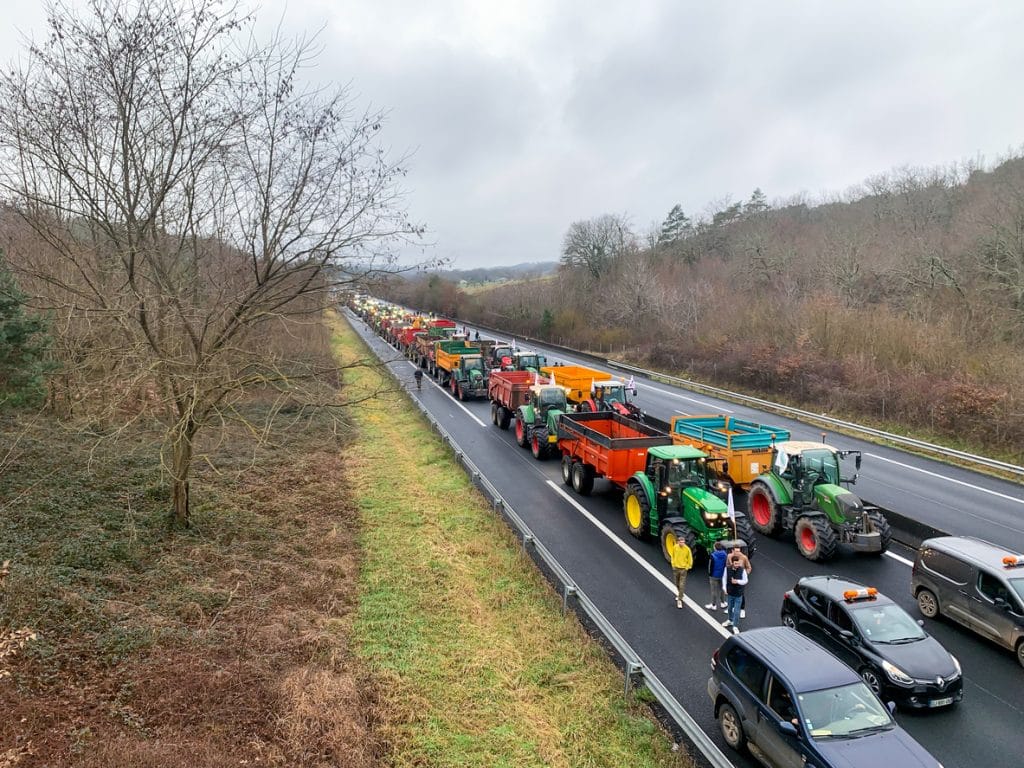
Across the world, the dividing lines between farmers, sustainability legislation, global trading agreements and food security are being drawn.
The protests are demonstrating just how challenging it is for governments to reduce agricultural emissions while ensuring a “just transition” — a shift toward climate-friendly farming that also supports farmers’ economic needs.
On paper, agriculture’s contribution to the global economy is small relative to services and industry. Farming accounts for less than 2% of gross domestic product (GDP) in the EU and less than 1% in the U.S. That number is higher in developing economies – it’s 15% in India, but that number is steadily declining, around 7% in Brazil and a much higher 35%-40% across the African continent.
However, these numbers don’t reflect the outsized importance of farming in the minds of global populations in an era of climate change, food inflation and food security. The war in Ukraine threw into sharp relief the fragility of global agricultural production and trade, particularly in Europe. That’s why we wanted to look closer at some of the key issues in this edition of ‘The Commodity Perspective’.
“Across the world, the dividing lines between farmers, sustainability legislation, global trading agreements and food security are being drawn.”
As traders in Agri-commodities, we are part of the agricultural value chain with farmers. Our role in price discovery and warehousing risk is essential for crop farmers to make informed decisions about their planting and harvesting and helps them manage price volatility. We also ship grain from South America, with our Freight desk working with clients in Brazil.
We have a stake in ensuring we get the sustainability and economics of farming right, but so do all of us. Climate change is reshaping agricultural markets, and small-scale farming is becoming more challenging. However, there is still a genuine opportunity to support farmers in improving their sustainability practices and making them profitable. There also needs to be an honest conversation with consumers about the value of food and the price of the produce they eat, as food waste has become a chronic problem, particularly in developed economies.
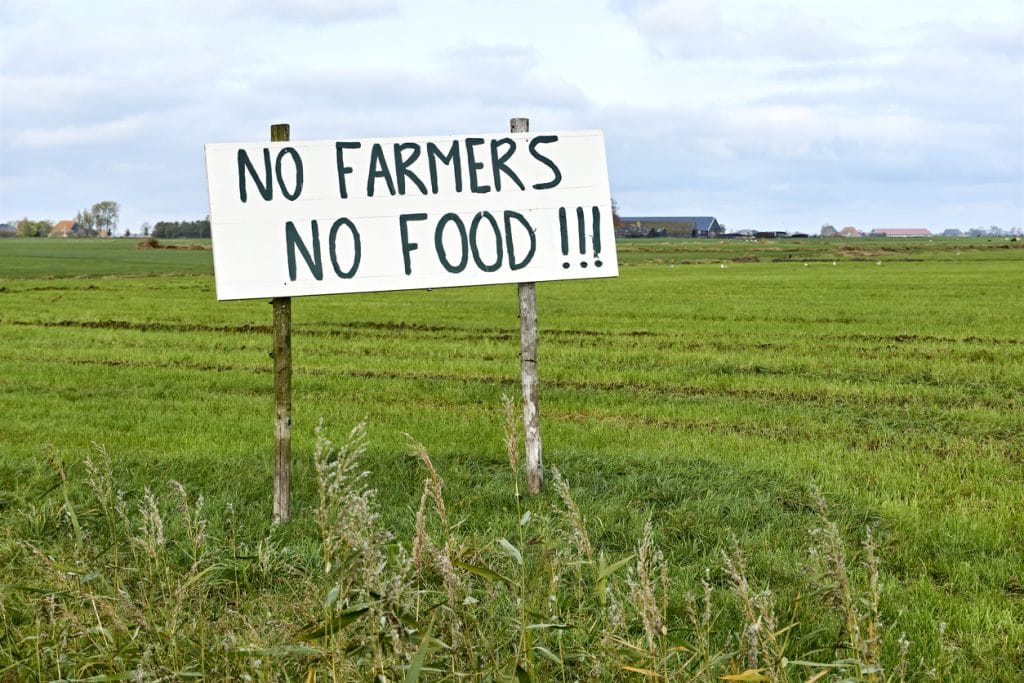
Europe’s farmers
Violent clashes between Europe’s farmers and authorities across the continent have created global headlines in the last couple of months. Images of tractor blockades, burning tyre fires and eggs and manure being thrown at police have caught the world’s attention.
European farmers have not only called for guaranteed pricing for their produce but also a relaxation in environmental regulations and a reconsideration of trade deals that they say are allowing cheap food imports to undercut prices for EU producers.
The challenge is that there are broadly two different farming groups with different priorities. One is the larger farms and agribusinesses, represented by the Copa Cogeca farming lobby; the other is small food producers and agricultural workers, partly represented by Via Campesina, a group that says it stands for “food sovereignty.”
The larger farmers appear to be prioritising opposition to environmental regulation, calling it a “regulatory tsunami”, whereas the smaller farmers are more focused on price and trade deals. It’s the larger agribusinesses that are getting the most traction at the moment. The EU Commission has already withdrawn a flagship proposal to cut pesticide use and put on hold the plan to force farmers to set aside 4% of their land as fallow to encourage biodiversity and soil health.
What’s clear is that there are elements of short-termism on all sides of this debate. It’s understandable that small farmers are angry as they see their businesses and their way of life being marginalised. Between 2005 and 2016, as the industry consolidated, the number of farms in Europe decreased by a quarter. In other words, nearly 4.2 million farms were lost — the vast majority of which were small farms — and that trend is continuing.
However, blaming trade agreements is misleading. The EU is the largest exporter of agri-food products to the rest of the world (more than €400bn in 2022), and that revenue is underpinned by a long history of trade deals. A significant volume of the Ags the EU imports is made up of coffee, tea, cocoa, and spices, which aren’t grown by EU farmers.
Negotiations of a wide-ranging trade deal between the EU and South America’s Mercosur trading bloc have been a target of particular anger, with European farmers unhappy at the prospect of what they see as unfair competition in sugar, grain and meat. However, any deal will also remove tariffs for European farmers to export their products to Mercosur countries.
We believe that open, rules-based, and well-functioning global markets benefit all countries. Global trade improves agricultural efficiency and offers consumers a wider choice of food at more affordable prices.
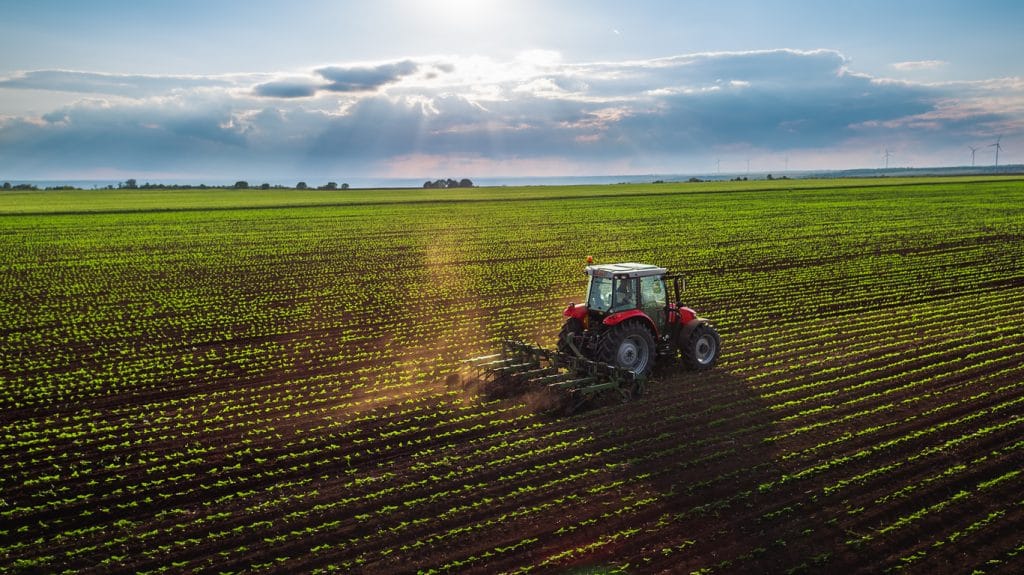
The Common Agricultural Policy
A more obvious cause of small farmers’ struggles is the historic structure of the EU’s ‘Common Agricultural Policy,’ which gives income support to farmers based on their farm’s size in hectares.
Recent reforms do address some of the funding inequality for small and medium farms, but previously, the CAP encouraged consolidation across the European farming sector, with many farmers going out of business or selling up.
Concerns about short-termism on the environmental side of the debate also exist. Some aspects of the EU’s ‘Farm to Fork’ strategy, which is a central pillar of the bloc’s ‘Green Deal’, have proven controversial, but for both farmers and politicians, kicking the can down the road for future generations is not a strategy.
Policymakers need to have more political courage to continue legislating in favour of sustainability policies in collaboration with farmers, not at odds with them. As we’ve mentioned, farmers also need to be fairly compensated, and that almost certainly means higher food prices, a challenge in an era of food inflation and ‘cost of living’ crises.
What’s becoming clear is that food prices have become disconnected from their fundamentals and underlying value. What we pay as consumers no longer reflects the full costs of food production or the environmental implications of large-scale farming.
“We believe that open, rules-based, and well-functioning global markets benefit all countries. Global trade improves agricultural efficiency and offers consumers a wider choice of food at more affordable prices.”
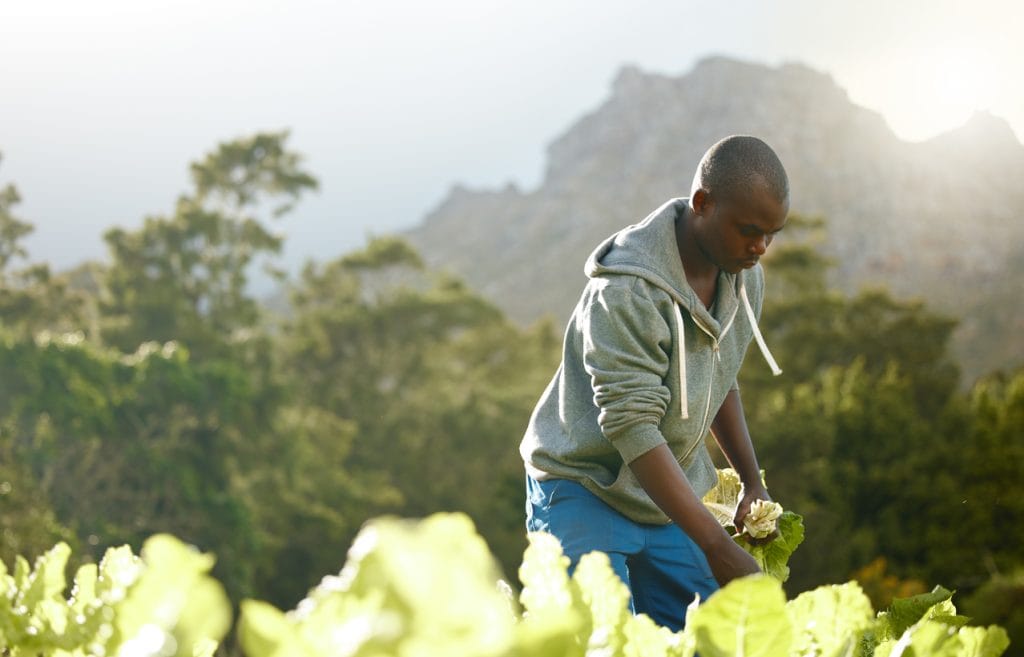
The future of sustainable farming
Agriculture is one of the biggest carbon emitters globally, but it’s also one of the industries that is most vulnerable to climate change. Farmers are already experiencing negative impacts from higher temperatures, more variable rainfall, invasive pests, and more frequent extreme weather events, which will worsen as climate change accelerates. Those impacts are being felt globally but are especially acute in developing countries with the fewest resources.
Farming contributes around 10% of total greenhouse gas (GHG) emissions in the U.S. and Europe, chiefly through the release of methane and nitrous oxide. Globally, the agricultural and forestry sectors are responsible for more than 20% of human-influenced greenhouse GHGs. There’s no doubt that farmers must reduce their emissions, but farmers in the EU complain that they have been unfairly maligned and not consulted on legislation.
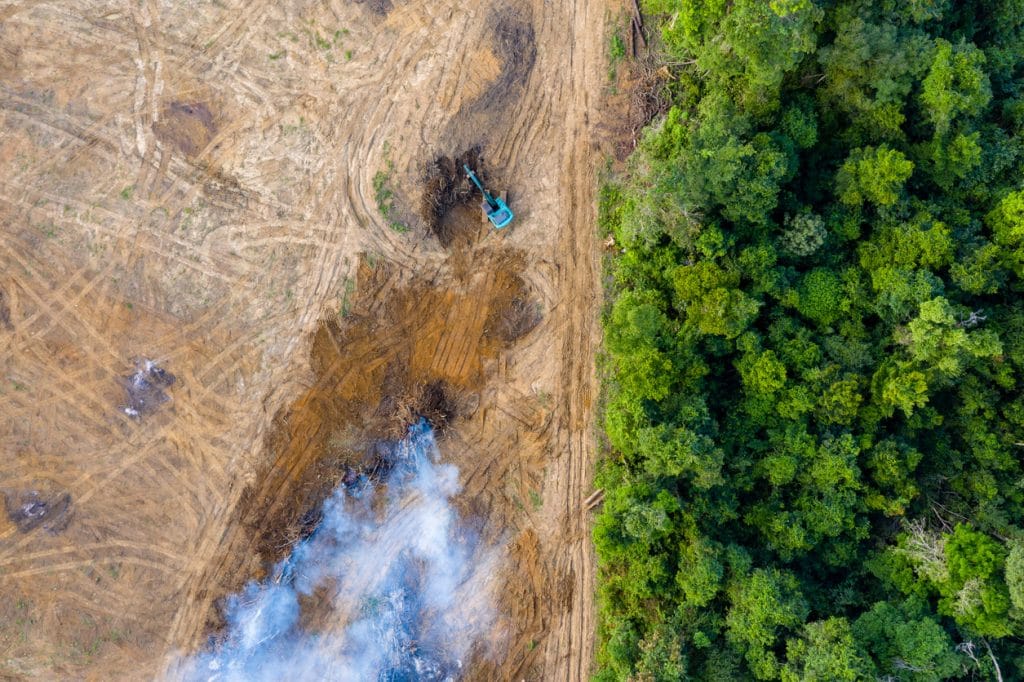
The challenge of deforestation
The EU has also been accused of exporting its sustainability legislation and penalising smaller farmers in developing nations. The EU Deforestation Regulation (EUDR), which comes into effect in December 2024, is designed to reduce deforestation in global supply chains and ensure products imported into the bloc do not contribute to the destruction of rainforests.
Every effort to reduce deforestation should be welcomed, but it remains to be seen if the EUDR strikes the right balance between meeting the European demand for agri-food products from developing nations and supporting these farmers’ use of more sustainable agricultural practices.
A recent declaration from the Amazon Cooperation Treaty Organisation, which includes Brazil, Bolivia, Colombia, Ecuador, Guyana, Peru, Suriname and Venezuela, criticised the “proliferation of unilateral trade measures based on environmental requirements”, [cs1] saying they unfairly impacted small-holder farmers.
Agricultural commodities covered by the regulation – like cocoa and coffee – are also key economic drivers for many African countries, with Europe being one of their largest markets. The risk with the EUDR is that it again favours large-scale producers who can afford the additional traceability costs and marginalises smaller farmers.
Sustainability in U.S. Farming
The U.S. has largely avoided federal regulation; instead, its approach to agricultural sustainability is focused on voluntary initiatives and market-based strategies to incentivise farmers to adopt sustainable practices. Programmes like The Partnerships for Climate-Smart Commodities, which is in the process of allocating more than $3bn to farmers and ranchers that prioritise methods to reduce GHGs or sequester Carbon Dioxide from the atmosphere.
These practices include reducing or eliminating tilling of soil, planting “cover crops” that grow during the off-season and are not harvested, improving how farmers use fertilizer and manure, and planting trees.
The U.S. government hopes that this will create new premium markets for ‘climate-smart’ food products, but there has been criticism that the positive environmental impact of these practices is hard to track.
The wider backdrop for U.S. farmers is that they’re facing the biggest drop in income in almost 20 years, with prices of everything from corn and soybeans to milk and pork falling steeply from recent highs. The concern is that sustainability will fall down their list of priorities.
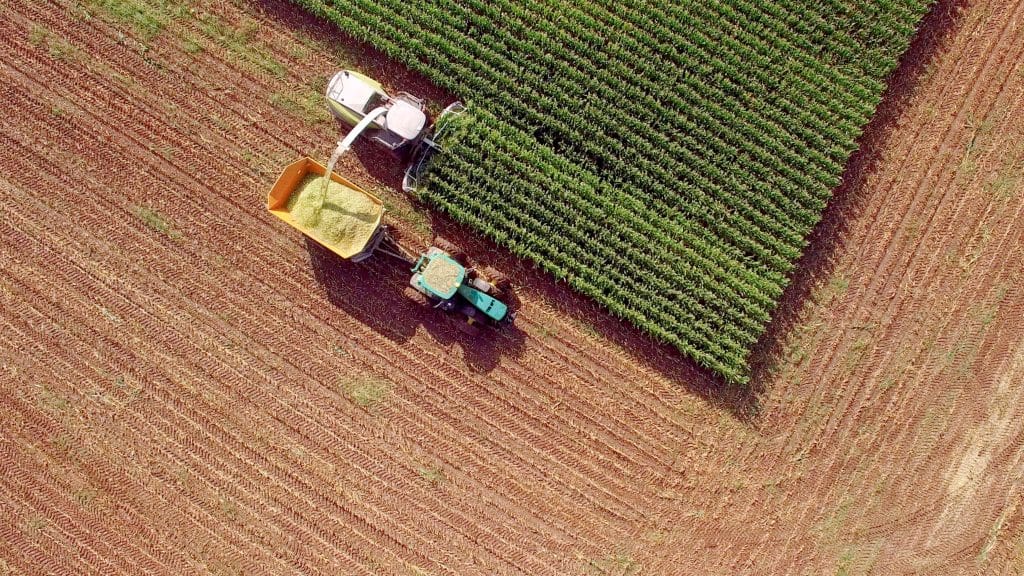
The status quo isn’t working
What’s become clear in recent months is that the status quo for global farming isn’t working. Sustainability and food security go hand in hand, but they’re also uneasy partners as technology and investment struggle to keep up with environmental legislation, inflation, and decreasing margins.
Farmers and nature have a symbiotic relationship that stretches back millennia. They understand the fragility of their land’s ecology better than anyone, and they’re at the front line of the green transition. Politicians are not being as transparent enough about the scale of the trade-offs needed to make farming sustainable whilst maintaining food security. Policymakers in all countries have a real opportunity to take an early-mover advantage in global markets by fast-tracking the development of their green agriculture sectors. Net zero farming will have to become a reality, so we either make hard decisions today or even harder ones tomorrow.
Farmers also need to accept that their industry will need to change dramatically in a post-carbon world, but they need significant extra financial support to enable that progression and ensure the burden is shared more equally across value chains and the wider global economies.
“Farmers and nature have a symbiotic relationship that stretches back millennia. They understand the fragility of their land’s ecology better than anyone, and they’re at the front line of the green transition.”
Finally, consumers need to understand their diets and adapt their perception of food’s value. That doesn’t mean the whole world must turn vegan overnight, but it does mean that consumers will certainly have to pay more for those agri-food products that emit the most carbon and become much more aware of the cost of food waste.